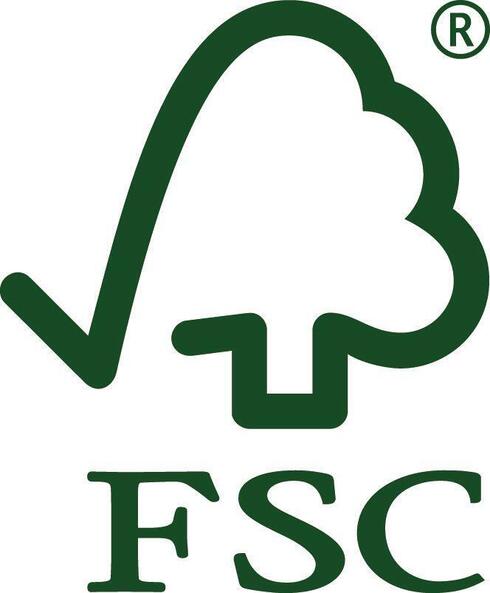Plywood is a much more sustainable material compared to acrylic but there are still some things worth considering. One benefit of using wood as a material to work with is that trees and wood do an important job of capturing carbon from the atmosphere. Plywood is not biodegradable because of the glues used to stick together thin veneers of wood to create sheets but it can be recycled. These glues can contain formaldehyde which off-gas and sometimes even emit volatile organic compounds (VOCs) over time. Some plywoods will use natural-based glues that don’t contain formaldehyde and contain soy proteins instead (read more).
Plywood made from softwood is considered more sustainable than hardwood because softwood trees grow and regenerate more quickly. Rare tropical hardwoods, like mahogany, teak, meranti, etc, should be avoided altogether. Harvesting wood has lead to deforestation and biodiversity loss. Unsustainable logging accelerates climate change as well.
What are the alternatives?
Luckily there are some standards in place to create more sustainable plywood. The Forest Stewardship Council, or FSC, certification ensures that the product comes from responsibly managed forests that provide environmental, social, and economic benefits. Always look out for the FSC logo. Specifically, a FSC certification means the following:
- Zero deforestation – trees are harvested responsibly so there is no net loss of forest over time
- Fair wage and work environment for workers
- Plant and animal species are protected
- Local communities are consulted and their legal and cultural rights to land and forest resources are respected

You can find FSC certified plywood at your local hardware store. Here are some suppliers:
- Home Depot sells 15/32 inch, 4 x 8 ft FSC certified sheet. This would work great on the ShopBot CNC or in the ITP wood shop.
- Lenoble Lumber out of Long Island City.
- Roberts Plywood
Another option for sustainable plywood is RevolutionPly from Patriot Timber. It is made from 100% plantation and sustainable wood sources and contains no tropical species.
